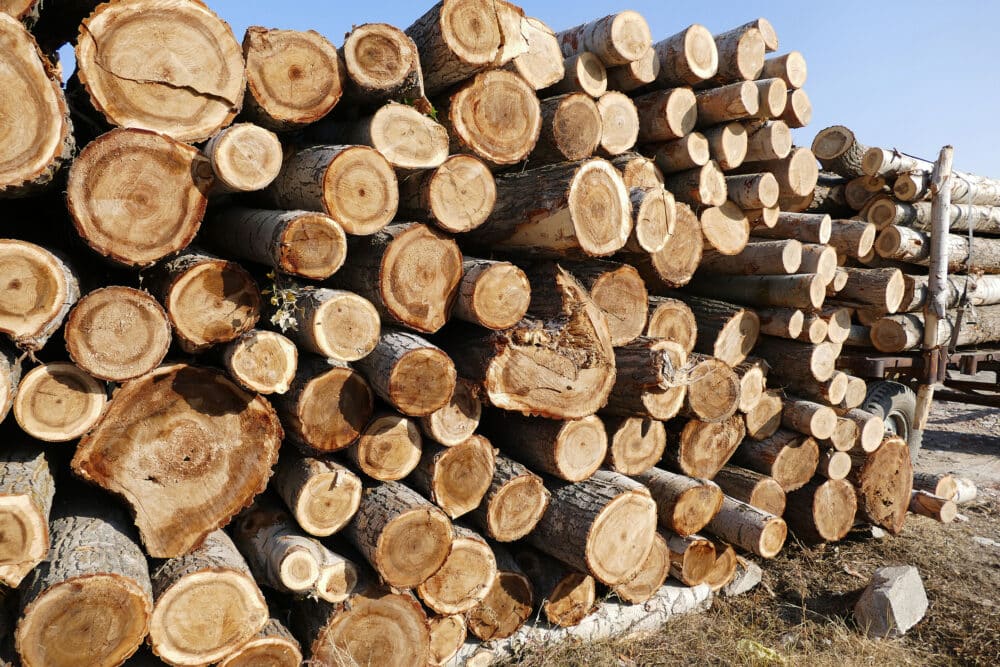FSC® certification
Ask about our certified products
Einar Risør Finerhandel A/S is FSC® certified under certificate no.: PBN-COC-011798 and PBN-CW-011798.
Download the certificate here: fsc-certificate
FSC® is the world’s most ambitious global certification for responsible forestry and your security for wood and paper from well-managed forests and other responsible sources. FSC® works for both nature and people’s conditions in the world’s forest areas. FSC® is supported by recognized NGOs such as WWF World Wildlife Fund and Forests of the World.
Forests are of enormous importance to both people, nature and the climate. We must protect the forests so that future generations can benefit from them, just as we do today. FSC® is important as one of the tools to ensure this.
See more on the website www.fsc.dk

Forests have many important functions for our society, nature and climate.
They create economy and income through the sale of wood. They create jobs locally and they give us all experiences. At the same time, forests store CO2 and are home to a very large part of the wildlife, biodiversity and people who live in and around forests. In fact, more than 25% of the world’s population depends on forests for their survival, according to the UN Food and Agriculture Organization FAO.
As a certification scheme for responsible forest management, FSC® is a tool to ensure that current and future generations can benefit from the many functions of forests. In addition, FSC® contributes to solving some of the challenges that forests face in terms of biodiversity, social conditions and deforestation, and other challenges such as global warming and CO2.
FSC® sets a number of specific requirements for forests that are of great importance to our climate, people, local communities, wildlife, nature and future generations.
Legal wood
The very first principle in FSC’s forest certification rules requires that FSC-certified forest properties comply with all applicable laws and regulations. This includes, among other things, that wood must be felled legally, that statutory duties and taxes are paid and that the wood is sold on normal market terms.
Deforestation not allowed
One of the basic requirements for a forest property to be FSC-certified is that the forest owner does not cut more wood than the forest can reproduce, whether naturally and/or through replanting. In other words, that the forest cover is preserved and that deforestation does not occur.
Protection of biodiversity, endangered species and other natural values
In FSC-certified forests, the forest owner must protect natural values.
For example:
- Rare and endangered species and their habitats.
- Natural watercourses and wetlands (streams, lakes and rivers, etc.).
- Areas with high conservation values (high biodiversity, intact forest landscapes, drinking water and groundwater, etc.).
Other considerations for biodiversity must also be taken into account. In a Danish FSC forest, this is done, for example, by leaving treetops, tall stumps and trees to decay and die, by leaving parts of the forest untouched, and by taking special care of sensitive bird species.
Respect for indigenous peoples’ rights to use the forests
In an FSC forest, it is a requirement that the forest owner respects the rights of indigenous peoples to use and have access to the forest. This also means the right to manage the forest and access to the resources that the forest can provide.
Fair wages and decent working conditions for forest workers
In an FSC-certified forest, it is a requirement that workers are educated, receive a decent wage and have decent working conditions – for example in terms of health and safety. In addition, the basic labor rights based on ILO conventions must be respected.
Gender equality for forest workers
FSC sets a number of requirements for certified forest owners to promote gender equality. For example, FSC requires that women and men have access to the same jobs under the same conditions, are paid the same wage for the same work, and women are encouraged to participate actively in all types of work. In addition, FSC requires that there are systems in place that promote gender equality and prevent discrimination.
Good relations and support for local communities
The forest owner must provide the local community with reasonable opportunities for, for example, employment by hiring local labor, if possible, and the opportunity to use the forest for recreational purposes, education and other purposes. FSC also requires that the forest owner has regular contact and dialogue with neighbors and users of the forest, if the forest management has an impact on them. In addition, it is a requirement that the forest owner contributes to economic and social development in the local community – examples of this are forest owners who finance better access to drinking water and schooling.
Protection of ecosystem services
In addition to being FSC certified, forest owners can use FSC to document that they are making an extra effort to protect certain ecosystem services such as water and biodiversity in their forest and attract investors who are willing to sponsor this.
A healthy forest business
FSC requires that the forest owner ensure an economically responsible forest property. Among other things, by offering hunting rentals and other benefits and forest products that can generate income in addition to selling quality wood. But also by ensuring that logging does not exceed the forest’s growth.
Economic incentive for responsible forestry
With FSC certification, forest owners gain access to more markets, the opportunity to get higher prices for their wood, and a forest property that will be more attractive to investors. With increasing demand for certified products, the economic incentive for certification and responsible forestry increases.
Strict requirements for the use of pesticides
FSC-certified forest owners may not use pesticides that are prohibited according to the FSC pesticide policy to control pests and must generally avoid pesticides. The FSC pesticide policy is stricter than general legislation in the field.
Protection of cultural values
FSC requires that areas of archaeological and historical importance, such as ancient monuments, are protected. This also applies to areas of important cultural, ecological, economic, or religious importance to local communities and indigenous peoples. For example, sacred sites and burial grounds.
Did you know?
Wood stores carbon both in forests and in durable wood products, thereby reducing the CO2 content in the atmosphere.


